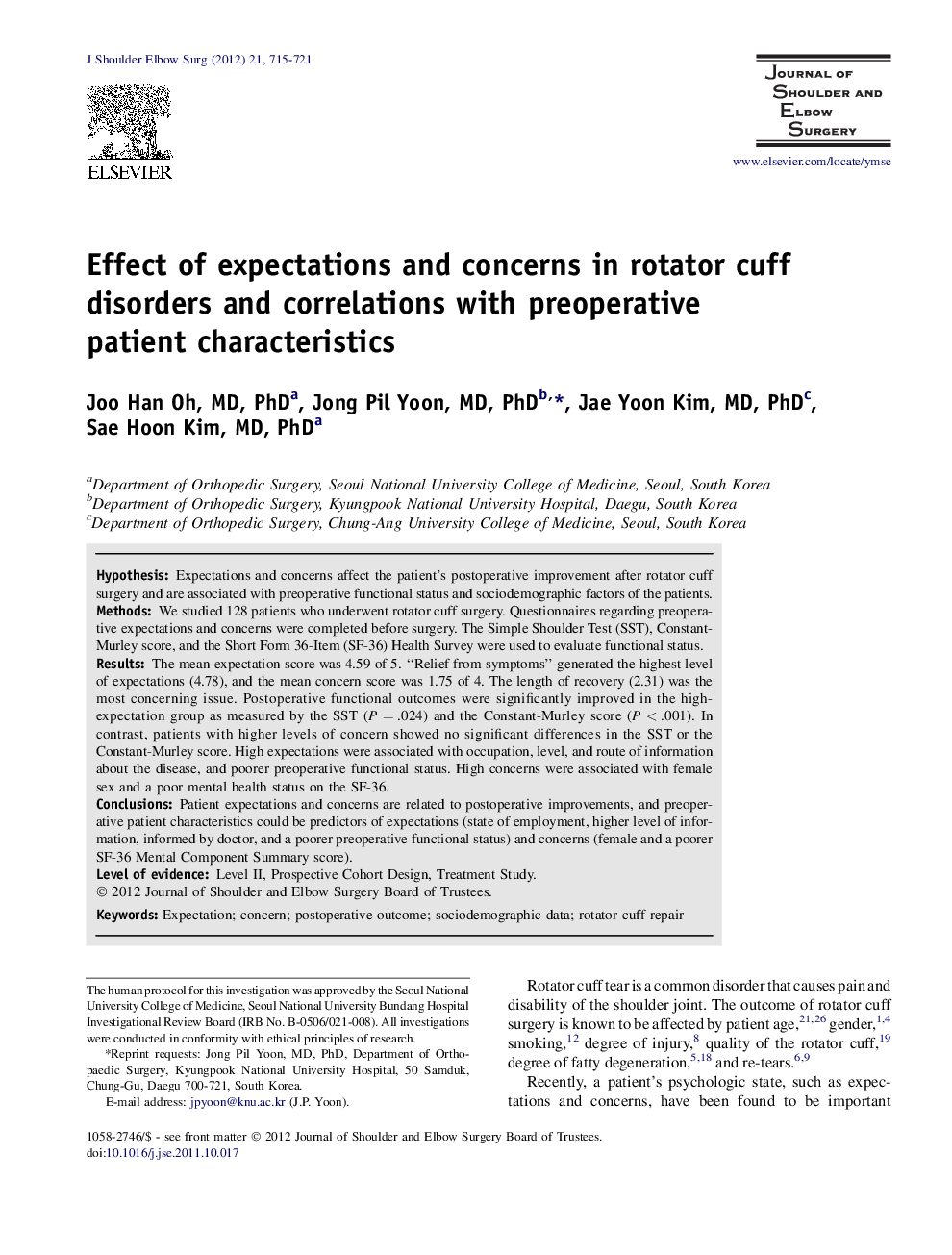| Article ID | Journal | Published Year | Pages | File Type |
|---|---|---|---|---|
| 4074372 | Journal of Shoulder and Elbow Surgery | 2012 | 7 Pages |
HypothesisExpectations and concerns affect the patient's postoperative improvement after rotator cuff surgery and are associated with preoperative functional status and sociodemographic factors of the patients.MethodsWe studied 128 patients who underwent rotator cuff surgery. Questionnaires regarding preoperative expectations and concerns were completed before surgery. The Simple Shoulder Test (SST), Constant-Murley score, and the Short Form 36-Item (SF-36) Health Survey were used to evaluate functional status.ResultsThe mean expectation score was 4.59 of 5. “Relief from symptoms” generated the highest level of expectations (4.78), and the mean concern score was 1.75 of 4. The length of recovery (2.31) was the most concerning issue. Postoperative functional outcomes were significantly improved in the high-expectation group as measured by the SST (P = .024) and the Constant-Murley score (P < .001). In contrast, patients with higher levels of concern showed no significant differences in the SST or the Constant-Murley score. High expectations were associated with occupation, level, and route of information about the disease, and poorer preoperative functional status. High concerns were associated with female sex and a poor mental health status on the SF-36.ConclusionsPatient expectations and concerns are related to postoperative improvements, and preoperative patient characteristics could be predictors of expectations (state of employment, higher level of information, informed by doctor, and a poorer preoperative functional status) and concerns (female and a poorer SF-36 Mental Component Summary score).
